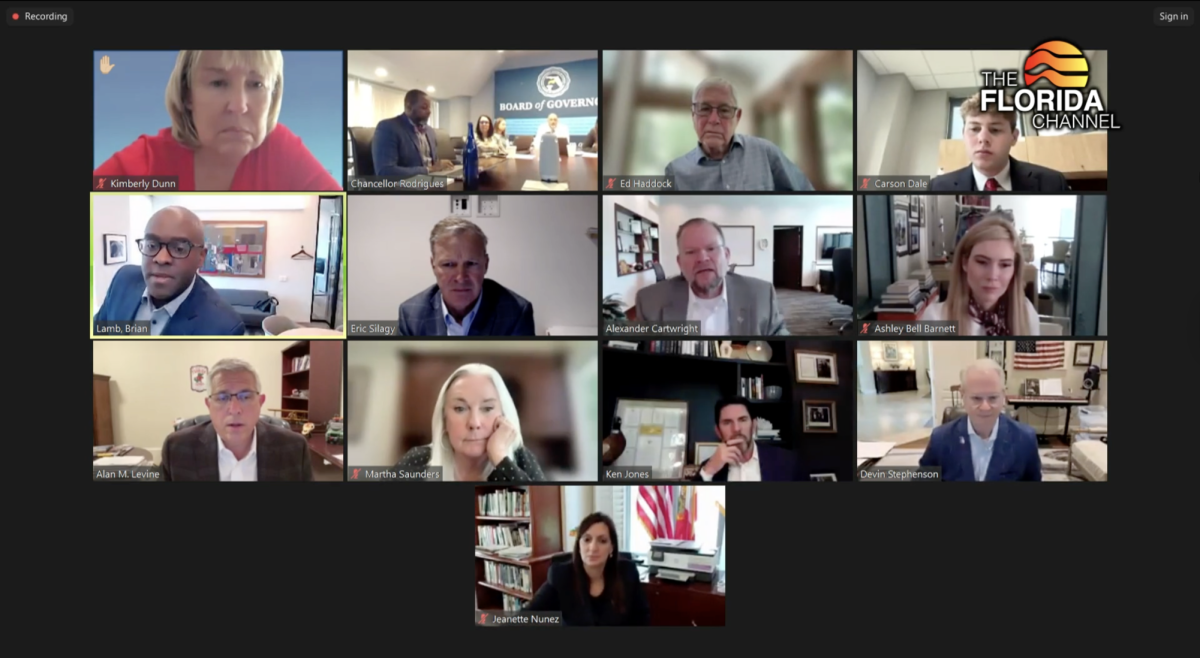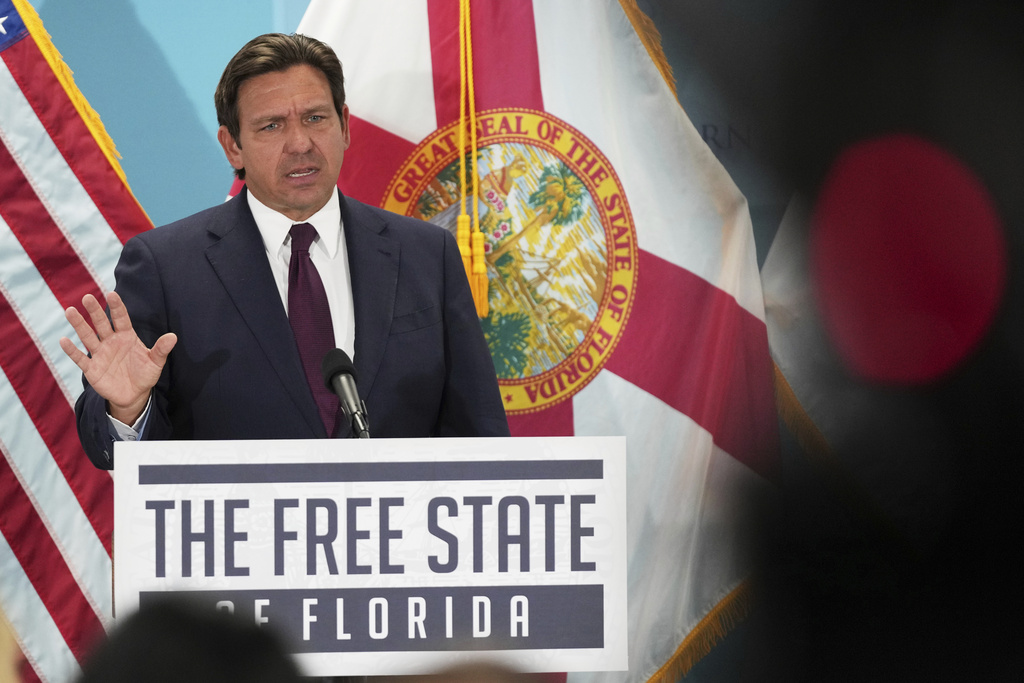The Florida Board of Governors approved a new accreditor for the state university system on July 11. However, the agency, the Commission for Public Higher Education, still needs federal approval before public universities in Florida have the option to switch accreditors..
In a decision that could reshape the future of Florida’s public universities, the Florida BOG approved the controversial new accrediting body at its virtual meeting last week. The newly formed Commission for Public Higher Education (CPHE), backed by Gov. Ron DeSantis, aims to replace longstanding regional accreditors like the Southern Association of Colleges and Schools Commission on Colleges (SACSCOC). Although the board approved the CPHE, the new accreditor does not automatically take over the responsibility of accrediting Florida’s public universities.
The CPHE still needs federal approval from the Department of Education, which could take several years. If the CPHE is approved by the DOE, Florida’s public universities will have the choice to switch accreditors.
While this would not affect students immediately, a change in accreditors could eventually impact the University of North Florida’s access to federal funding, student financial aid, and the national reputation of its degrees.
The Florida Board of Governors’ Thoughts on the Commission for Public Higher Education
Ray Rodrigues, chancellor of the Florida State University System, said the CPHE’s accreditation model will prioritize “academic excellence and student success while removing ideological bias and unnecessary financial burdens.”

While the new accreditor was ultimately approved, the board spent about an hour discussing IT security, liability, staffing and logistical concerns related to the CPHE.
One of the board members, Kimberly Dunn, expressed concern over the optics of the board’s involvement with the CPHE.
“With us as the sole member, it appears, or could appear, to stakeholders that the accreditor lacks independence from the institution being accredited,” said Dunn.
BOG Chair Brian Lamb also acknowledged the board’s concerns and emphasized the need for communication from the chancellor.
“I do think the chancellor and team have a lot of work to do to continue to educate this board, to be blunt,” said Lamb. “A lot of the questions that we’re asking—forecast, IT, infrastructure, staffing—every last one of those are appropriate.”
However, Lamb did point out that approving the accreditor would help start the long process of validating the CPHE.
What is Accreditation?
Accreditors set and review standards for colleges and universities. Their assessments allow institutions access to government funding, students access to financial aid and credibility to degree programs.
Florida’s current accreditor, the Southern Association of Colleges and Schools Commission on Colleges, was founded in 1917.
SACSCOC has been UNF’s accreditor since 1974, just two years after the school opened. They are the accreditor for 11 states in the southern U.S.
For universities that move away from SACSCOC to the CPHE, it represents a major shift from a decades-long relationship and raises questions about stability, credibility and the future of accreditation in Florida.
What is the Commission for Public Higher Education?
The CPHE is a newly established accrediting body that oversees six state public university systems. Gov. DeSantis unveiled the new accreditor at the end of June. In a press release, he said Florida has set an example for the country in “reclaiming higher education.”
The CPHE Board of Directors will be appointed by the six university systems, according to a CPHE business plan.
In his statement, DeSantis referred to regional accrediting commissions as an “activist-controlled accreditation monopoly.”
The Florida governing board would incorporate the accreditor as a nonprofit in Florida and serve as its first sole member, using a $4 million appropriation from the Florida Legislature for start-up costs, which the business plan cited.
“Today, I announced that a new accreditor, the Commission for Public Higher Education, will offer an alternative that will break the ideological stronghold,” DeSantis said in the June press release.“With transparent, rigorous, outcomes-based standards, this accreditor will help ensure the Free State of Florida leads the way in higher education for decades to come.”
Criticism and concerns regarding the CPHE
The Florida Education Association and the United Faculty of Florida released a joint statement following DeSantis’ announcement of the CPHE, saying both organizations “strongly oppose the state’s creation of a politically-driven accreditor for public colleges and universities.”
“This proposed state accreditor appears designed to align more with political priorities rather than academic independence,” said Teresa M. Hodge, president of the UFF. “Our communities don’t need more politics in our education systems—we need systems that are focused on the growth of our students and not on the political whims of whoever is in charge.”
CPHE’s Timeline and Future Impacts
Although the Florida BOG approved the CPHE, the new accreditor does not automatically take over the responsibility of accrediting Florida’s public universities.
The new accreditor may have been approved, but that does not mean that all the universities under Florida’s state university system must endorse the CPHE, as State University System Chancellor Ray Rodrigues noted during the meeting.
“Approving this organization doesn’t commit all of our institutions to go get accredited by the organization. A key component of accreditation is choice,” said Rodrigues.
The CPHE must still get approval from the U.S. Department of Education, which takes around two years. According to the CPHE business plan, they estimate approval from the DOE between December 2027 and June 2028.
While possible accreditation by the CPHE seems to be a few years away, the new accreditor could change the foundations of Florida higher education.
Should the new accreditor be approved by the DOE, Florida’s public universities will have the option to remain with SACSCOC or switch to the new accreditor. It remains unclear how many institutions would make the transition.
In the meantime, a UNF advisory committee is currently working on the accreditation submission process through a different accreditor than SACSCOC or the CPHE, according to a UNF spokesperson.
“A UNF advisory committee is currently working on the accreditation submissions process through Higher Learning Commission,” the spokesperson said in a written statement.
The Higher Learning Commission has accredited around 1,000 midwestern colleges and universities and is one of five accrediting agencies recognized by the state, according to the Florida DOE.
___
For more information or news tips, or if you see an error in this story or have any compliments or concerns, contact editor@unfspinnaker.com.














